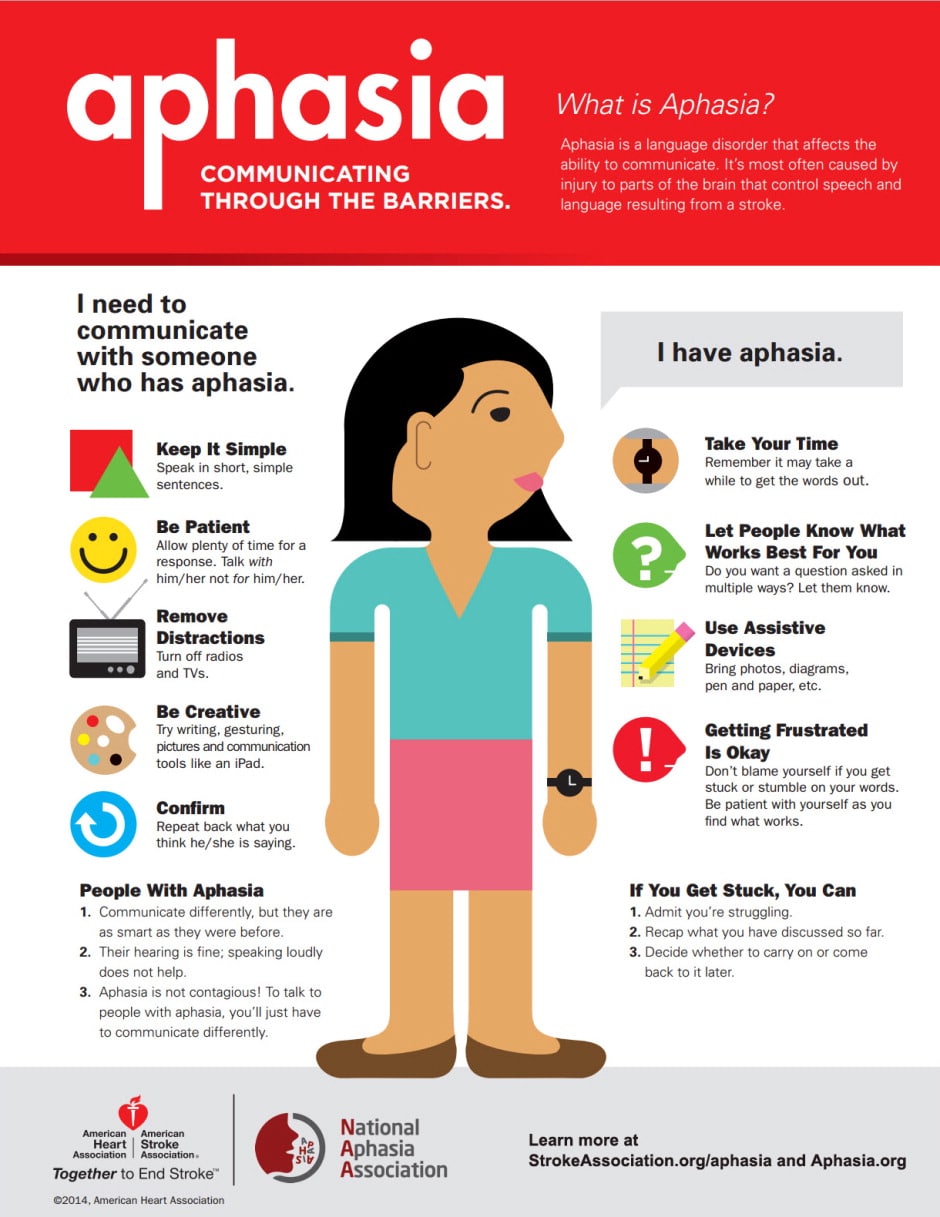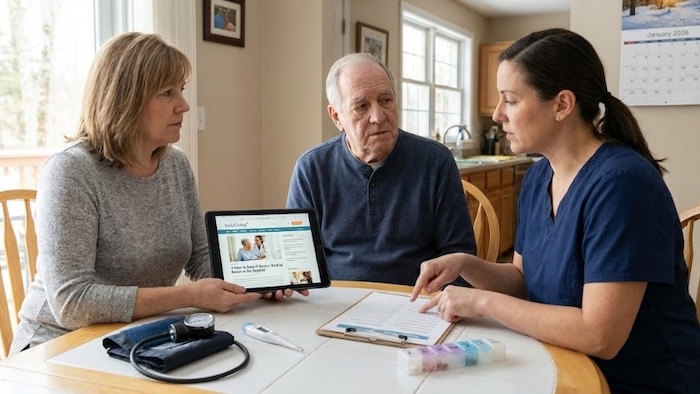Difficulty speaking after a stroke is common
When someone is recovering from a stroke, there are both physical and cognitive challenges to overcome.
One common side effect is aphasia (pronounced ah-fay-zhuh), which affects about one third of stroke survivors. It occurs when parts of the brain that process language are damaged.
Aphasia doesn’t affect intelligence, but people with this condition might have trouble speaking or finding the right words. They may also have problems understanding conversations, reading, writing, and using numbers.
We found a helpful tip sheet from the American Stroke Association that makes it easier to communicate with someone who’s having difficulty speaking after a stroke. It also includes suggestions to help them express themselves more easily.
Tips for improving communication with someone who has aphasia

Next Steps: Print or save this aphasia communication tip sheet from the American Stroke Association – choose an image of a woman or a man (PDFs)
Recommended for you:
- Recognize Signs of Stroke and Act F.A.S.T.
- TIA Is a Warning Sign of Stroke and Vascular Dementia
- 4 Advanced Auto Mobility Aids Help Seniors Get Into Cars
By DailyCaring Editorial Team
Infographic source: American Stroke Association
About the Author

Connie is the founder of DailyCaring.com and was a hands-on caregiver for her grandmother for 20 years. (Grandma made it to 101 years old!) She knows how challenging, overwhelming, and all-consuming caring for an older adult can be. She also understands the importance of support, especially in the form of practical solutions, valuable resources, and self-care tips.













